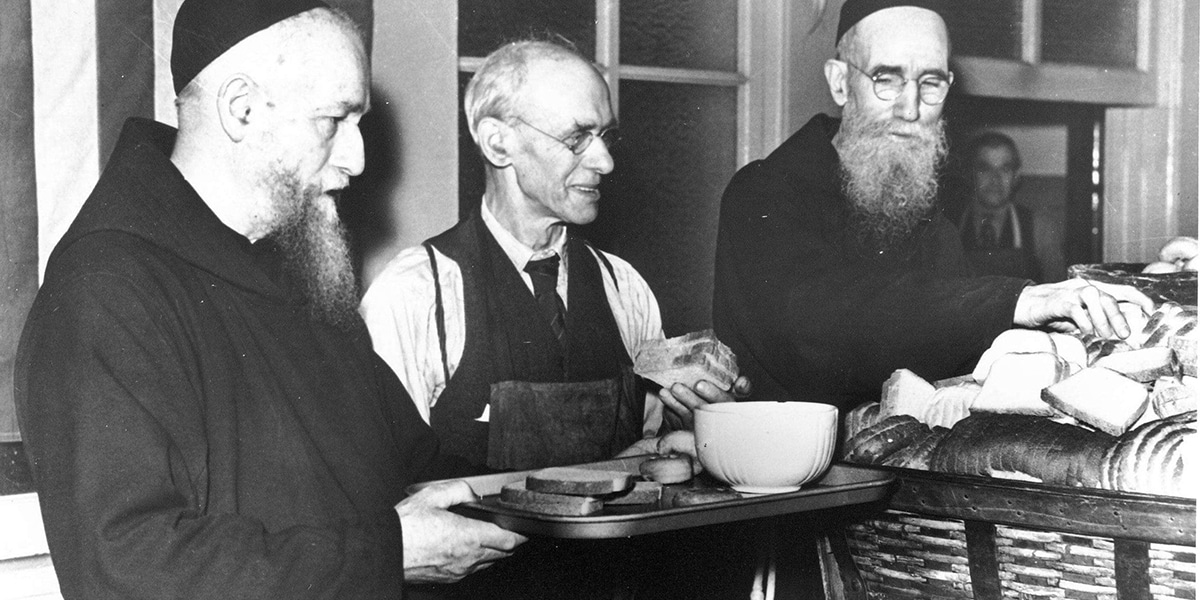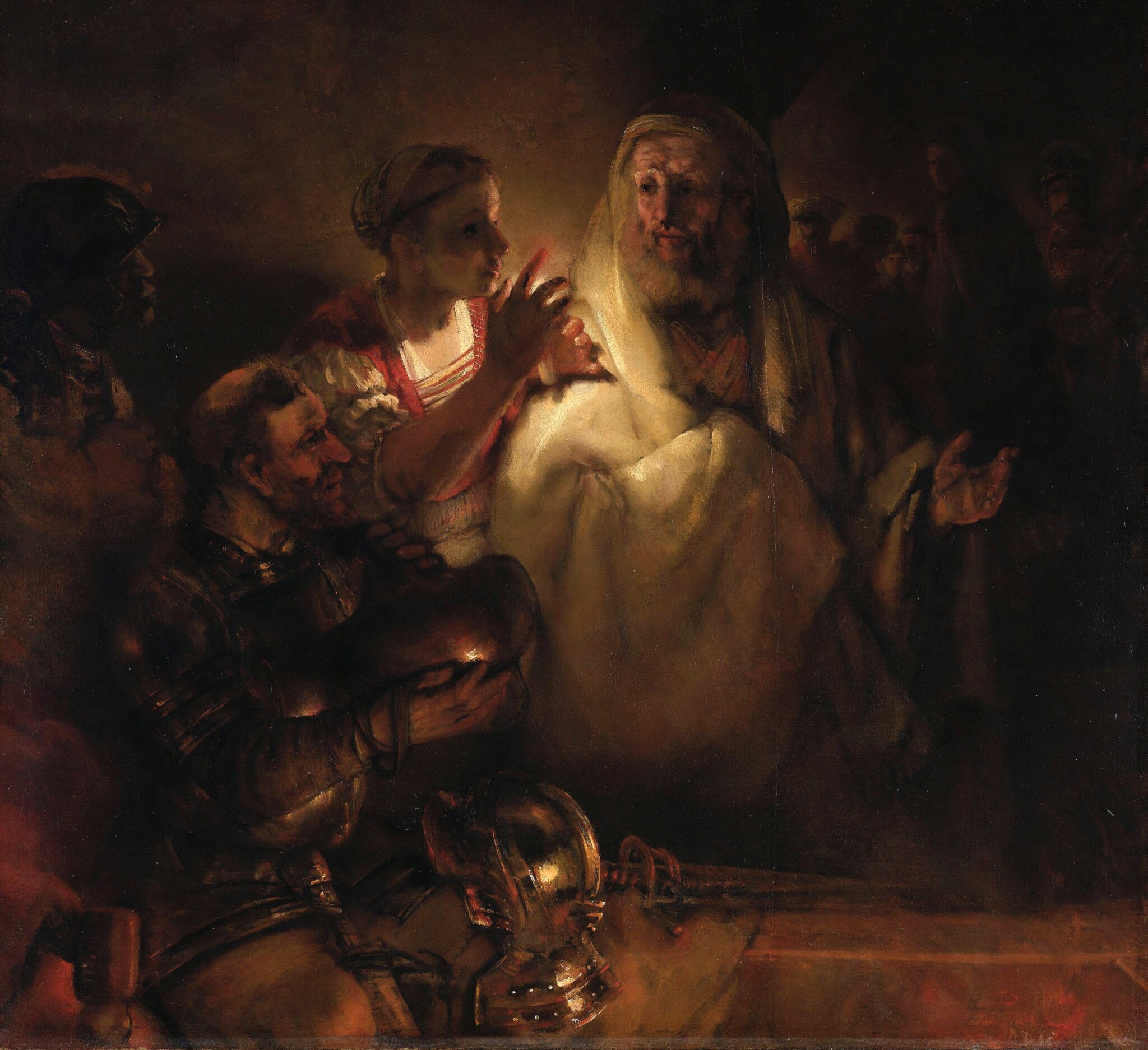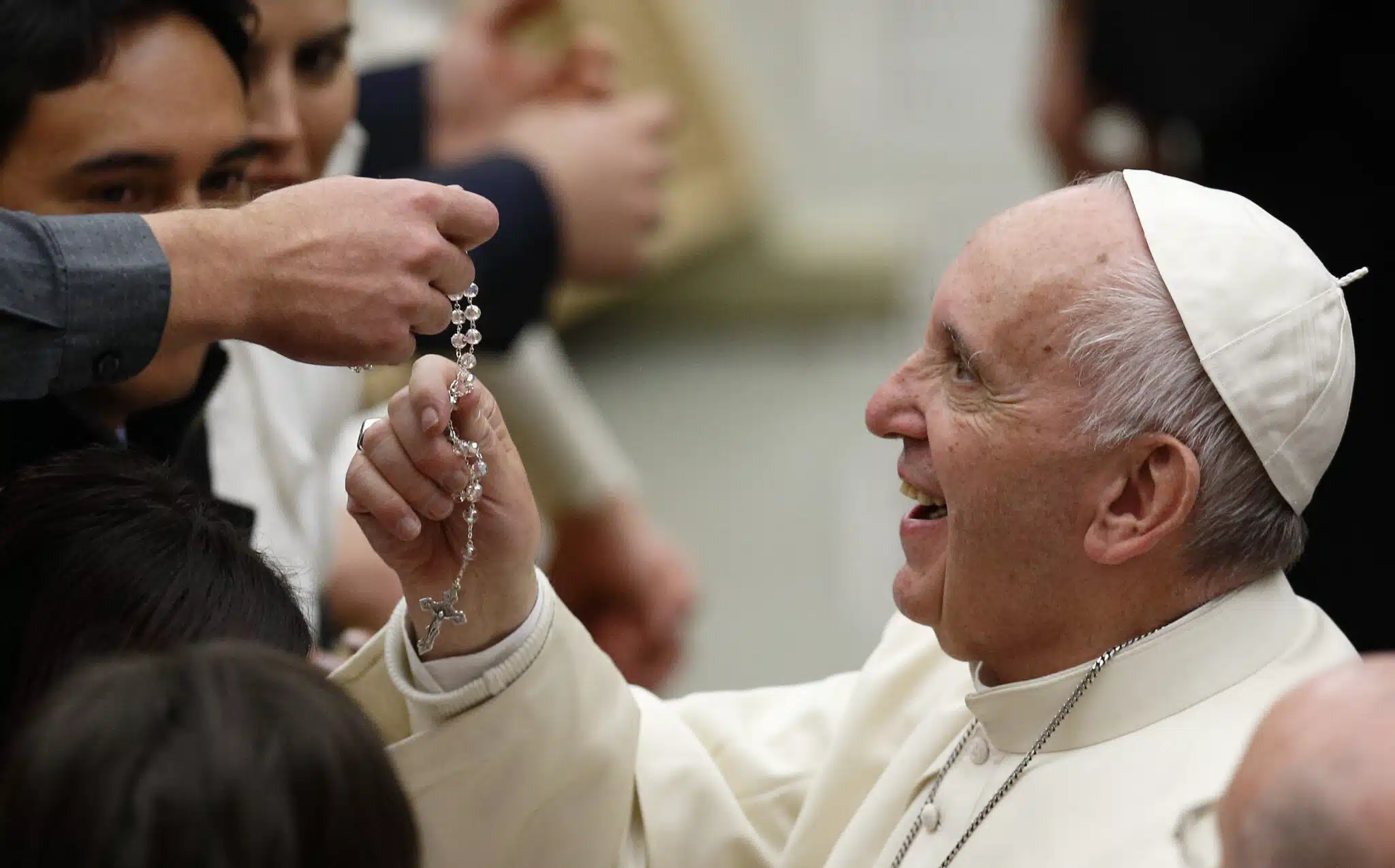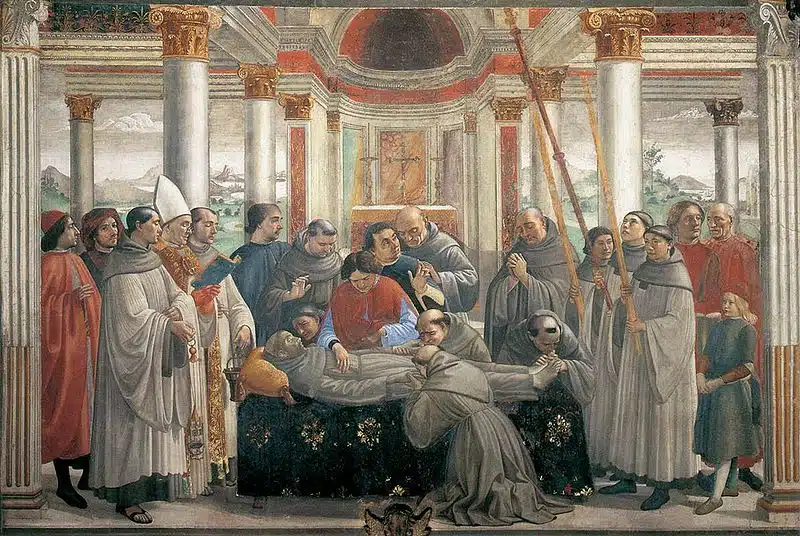
The Simple Witness of Solanus Casey
He counseled thousands in New York and Detroit, and miracles are attributed to his intercession. In a few weeks, he will take the next step toward canonization.
Find what you’re looking for

He counseled thousands in New York and Detroit, and miracles are attributed to his intercession. In a few weeks, he will take the next step toward canonization.

Love can never be general or abstract—it is only concrete and particular. What we know of other loves we know by analogy because as a creature I must live in the limits of my love. I cannot love forests in general any more than I can love people in general. As the essayist Charles D’Ambrosio has put it, “If you can love abstractly, you’re only a bad day away from hating abstractly.” For love to work, it must be anchored in the particular or else it is likely to simply float along with the changing currents of emotion.

In John’s Gospel, before Jesus predicts Peter’s denial, Peter says to him, “I will lay down my life for you” (John 13:37). Peter has not yet come face-to-face with his own weakness, his own limitations. He is so sure that his faith will not fail that it never occurs to him to ask the Lord for strength. How often do we do the same?

One of the gifts in my life for which I am most grateful is the way I was taught about the Blessed Trinity. Others have told me that, early on, they got the message that God’s Trinity is a mystery we could never fathom, so they draw the conclusion, why bother? When I was told of this mystery, it was always in a tone that invited me to explore it—the task not of a lifetime only but of eternal life, life beyond time. My life of prayer has been just this exploration, and it continues to be so. In fact, now in my eighties, I feel I’ve barely begun.

One of the most common questions people have about the end of the world is, simply, “What will happen in the future?”

Here I would like to emphasize the beauty of a simple contemplative prayer, accessible to all, great and small, the educated and those with little education.

There have been several Franciscan popes in history, most recently Pope Clement XIV (1769–1774).

When you look at Saint Francis, you see the Crucified Christ whose presence within Francis was so real and so intense that the very wounds of Christ Crucified broke forth in his body, revealing to the whole world that here, indeed, was the ultimate disciple of Christ, who not only bore in his body the wounds of Christ, but whose heart was filled with the love that moved Christ to suffer for love of us. As St.

Saint Francis knew, it seems, the inner power God invested in the words that sprang up spontaneously from his gratitude for the assurance of God’s kingdom. Then when Father Francis came to die, he sang the final stanzas of his Canticle, knowing full well the words would give him hope and courage to make the passage into the kingdom that already dwelled within him, a mirror of the kingdom he was about to return to.
Praised be you, my Lord, through our Sister
Bodily Death from whom
no one living can escape.
Woe to those who die in mortal sin!

The main thing is to be aware of the angels around you—and get in the habit of calling upon them for little favors. Invoke them silently as you begin each conversation, as you dial the phone, as you start to reply to an e-mail. Ask them to give you the right words. Ask them to help you avoid words that can damage your relationships and compromise your Christian witness. And don’t stop asking the angels to keep you safe and healthy! Go ahead and call upon your angel every time you start your car or cross a busy street. We can’t help but be self-interested; it’s our nature.

28 W. Liberty Street
Cincinnati, OH 45202
513-241-5615
info@franciscanmedia.org
Customer Service:
cservice@franciscanmedia.org
Technical Questions:
support@franciscanmedia.org
Writer’s Guidelines
Privacy Policy
Post a Prayer Request
Webmaster Login